For many people living with inflammatory bowel disease (IBD), a simple dinner invitation – to a hotpot meal or barbecue with friends – can be a source of stress and anxiety, shared Dr Yan Chen, co-founder of the China Crohn’s and Colitis Foundation.
Saying yes risks triggering a painful flare-up, while declining such invitations means missing the chance to connect. Over time, this constant tension can lead IBD patients to live double lives – hiding their condition from schoolmates, colleagues and even close family members.
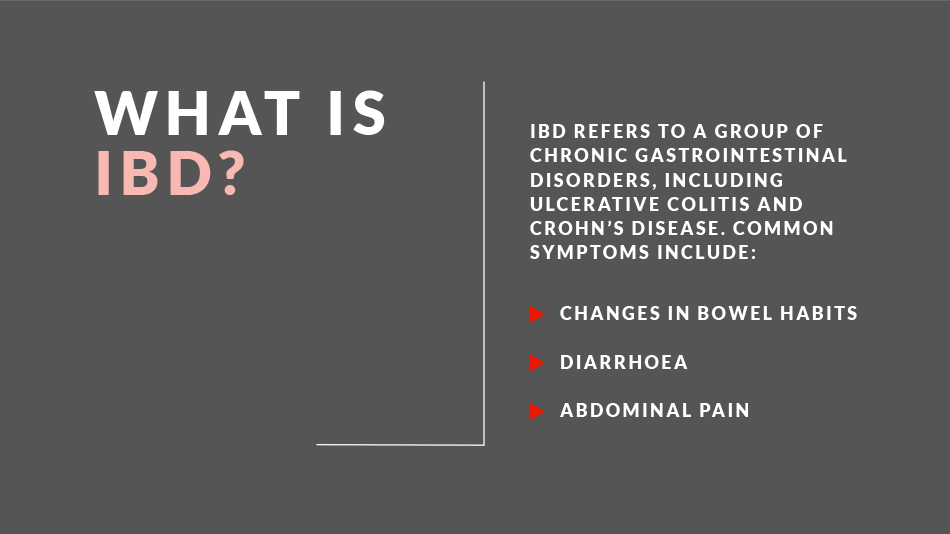
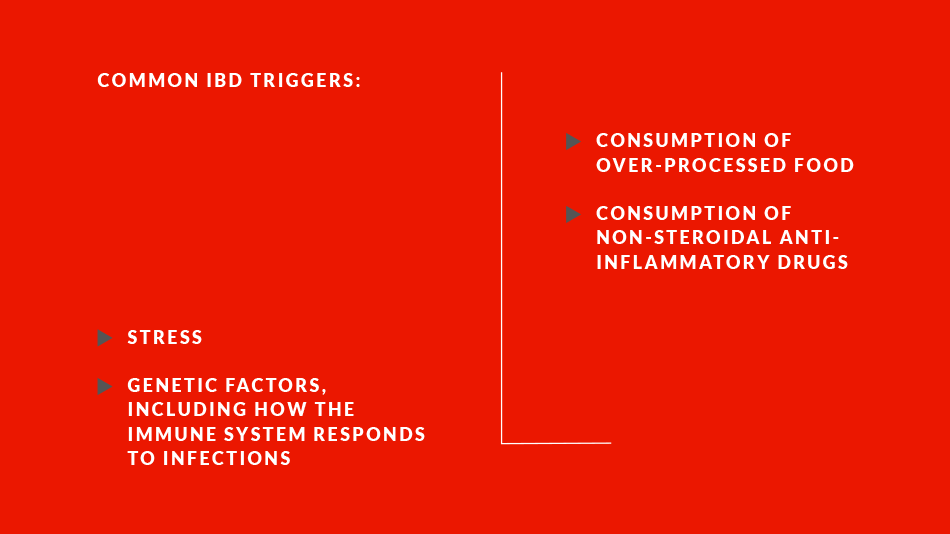
MORE THAN A GUT FEELING
IBD often begins in adolescence or young adulthood, and its physical and emotional toll can disrupt school life, relationships and careers.
Dr Chen, who is also director of the IBD Centre, Department of Gastroenterology, the Second Affiliated Hospital, Zhejiang University School of Medicine, China, noted that her patients often fear high-pressure situations like school examinations or business trips, as stress can trigger a flare-up. “Even with their best efforts, many patients feel worn down by the long-term strain of IBD – from its physical effects to the stigma and financial burden. More people need to understand how serious the condition is,” she added.
Despite the rise in IBD cases globally, including in Asia, awareness remains low – a gap that can delay diagnosis and treatment, highlighted Ms Leanne Raven, CEO of Crohn’s & Colitis Australia. “One patient I met wasn’t diagnosed until she was 30, even though she’d had tummy problems for many years,” Ms Raven recalled.
To address this, Crohn’s & Colitis Australia has launched an advertising campaign for World IBD Day on May 19, centred on the theme ‘Shatter the IBD Silence’. Posters with QR codes will be placed in toilet cubicles at shopping centres, universities, airports and other public spaces across Australia. When scanned, these codes lead to a symptom checker and encourage readers to see a doctor if they suspect they have IBD.

FROM FLARE-UPS TO FINDING BALANCE
Even after diagnosis, new challenges can emerge. For example, Ms Raven explained that when IBD isn’t managed well, patients may avoid trigger foods to the point of malnutrition.
One approach to address this is exclusive enteral nutrition, a nutritionally complete liquid diet taken in place of food for eight to twelve weeks. While effective for treating children with Crohn’s disease, its restrictive nature – requiring patients to consume only formula and no solid food – can affect quality of life, said Dr Chen.
To support both physical health and emotional well-being, holistic, patient-centric care is essential. Safe spaces for IBD patients – such as the summer camps organised by the China Crohn’s and Colitis Foundation as well as the Crohn’s & Colitis Australia’s Kids Fun Day – help raise awareness, foster connection and build mental resilience. “Peer support is really important,” said Ms Raven. “People want a life where they’re not isolated and can participate like everyone else.”
ENDING THE DOUBLE LIFE
Johnson & Johnson is helping to bring IBD out of the shadows through a new patient-focused Asia-Pacific campaign that highlights the double lives many people lead while managing the condition.
“The initiative empowers patients to take dual control of their health and life goals – and encourages more open conversations about care. In collaboration with gastroenterologists, advocacy groups and the media, the campaign aims to break stigma and support informed, confident decision-making,” shared Mr Andrew Wheatley, vice president, Asia Pacific Communication and Public Affairs, Johnson & Johnson.
NEXT-GENERATION IBD CARE
While conventional medications remain a cornerstone of IBD management, they can cause side effects such as headaches, nausea, elevated blood pressure, osteoporosis as well as higher risk of infections and malignancies. In fact, fewer than 10 per cent of these patients achieve remission.
Recent breakthroughs are reshaping the treatment landscape. Biological medicines, for instance, target specific inflammatory pathways with greater precision. These include anti-tumour necrosis factor drugs, anti-integrin agents and interleukin-12/23 inhibitors – therapies that have shown higher response and remission rates, especially when used alongside traditional therapies.
“What we’re seeing in the biologic era is just the beginning,” said Mr Wheatley. “There’s incredible progress happening in labs around the world that will bring even more hope to IBD patients in the future.”

BETTER TOGETHER
Today, IBD care follows a comprehensive model – combining conventional medications, biologics, nutritional therapy and lifestyle changes. At the heart of this is shared decision-making (SDM), which supports the development of more individualised and effective treatment plans. In SDM, the patient and doctor collaborate to create a treatment plan with minimal side effects and aligns with the patient’s specific needs.
Rather than focusing solely on physical symptoms, SDM considers how IBD affects a patient’s mental, emotional and social well-being. Through active listening and open conversations, doctors guide patients in assessing treatment options based on a holistic understanding of their lifestyle and personal context.
OWNING YOUR VOICE AND CARE
Despite being preferred by 80 per cent of patients with IBD and their doctors, SDM remains underused in the region. As the number of available IBD medications grows, more explanation and discussion are needed – making patient education key to more focused, meaningful conversations.
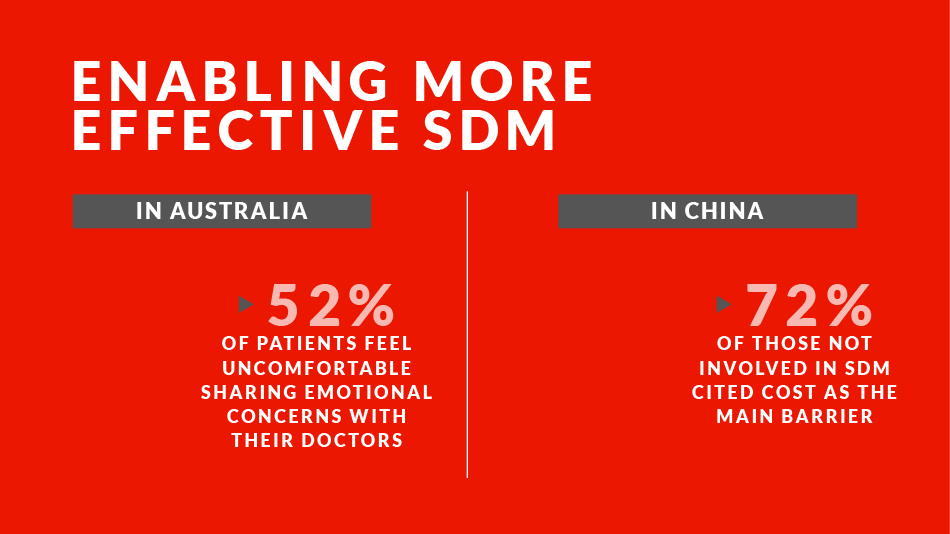
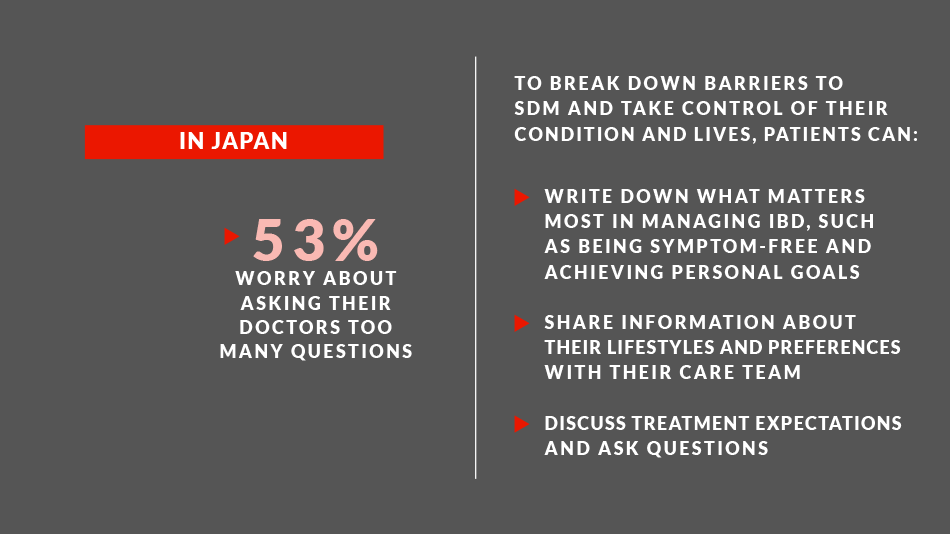
In China, where appointment times can be brief, Dr Chen and her team created short, informative IBD videos for patients to watch while in the waiting room. This helps ensure that the limited consultation time is spent on deeper, more productive discussions.
In Australia, Ms Raven shared that the helpline and support groups at Crohn’s & Colitis Australia offer tips and guidance on navigating SDM discussions with healthcare providers, helping patients feel more confident and prepared to engage.
Before starting an SDM conversation, Dr Matsuoka encourages patients to consider both their broader life goals and the smaller details of daily life. This allows doctors to better understand what matters most to each patient and develop a personalised, long-term care plan.
When patients feel empowered to speak up and take part in their care, SDM can ease the emotional burden of IBD – allowing them to live more openly, without the need to lead a double life.
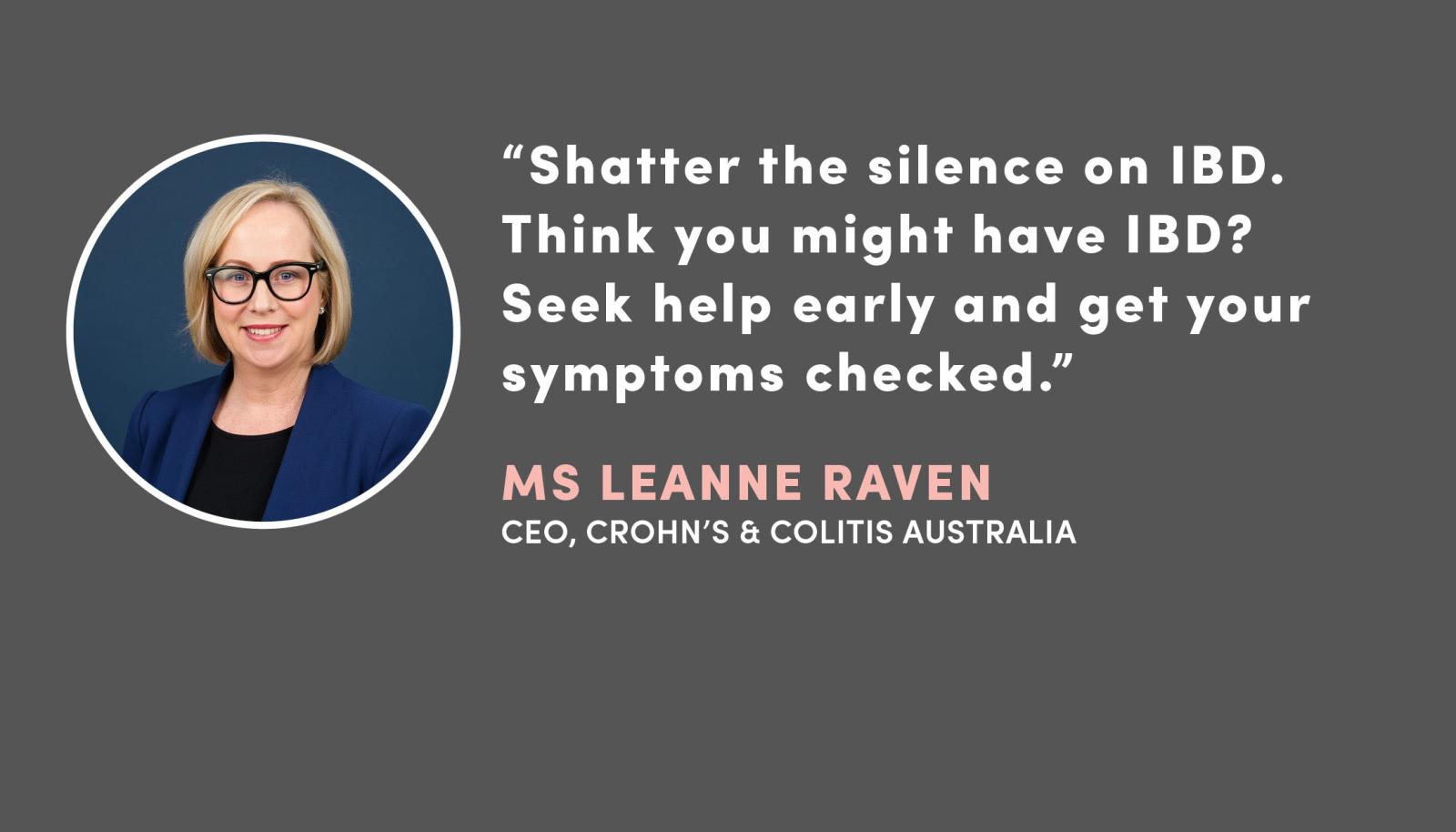
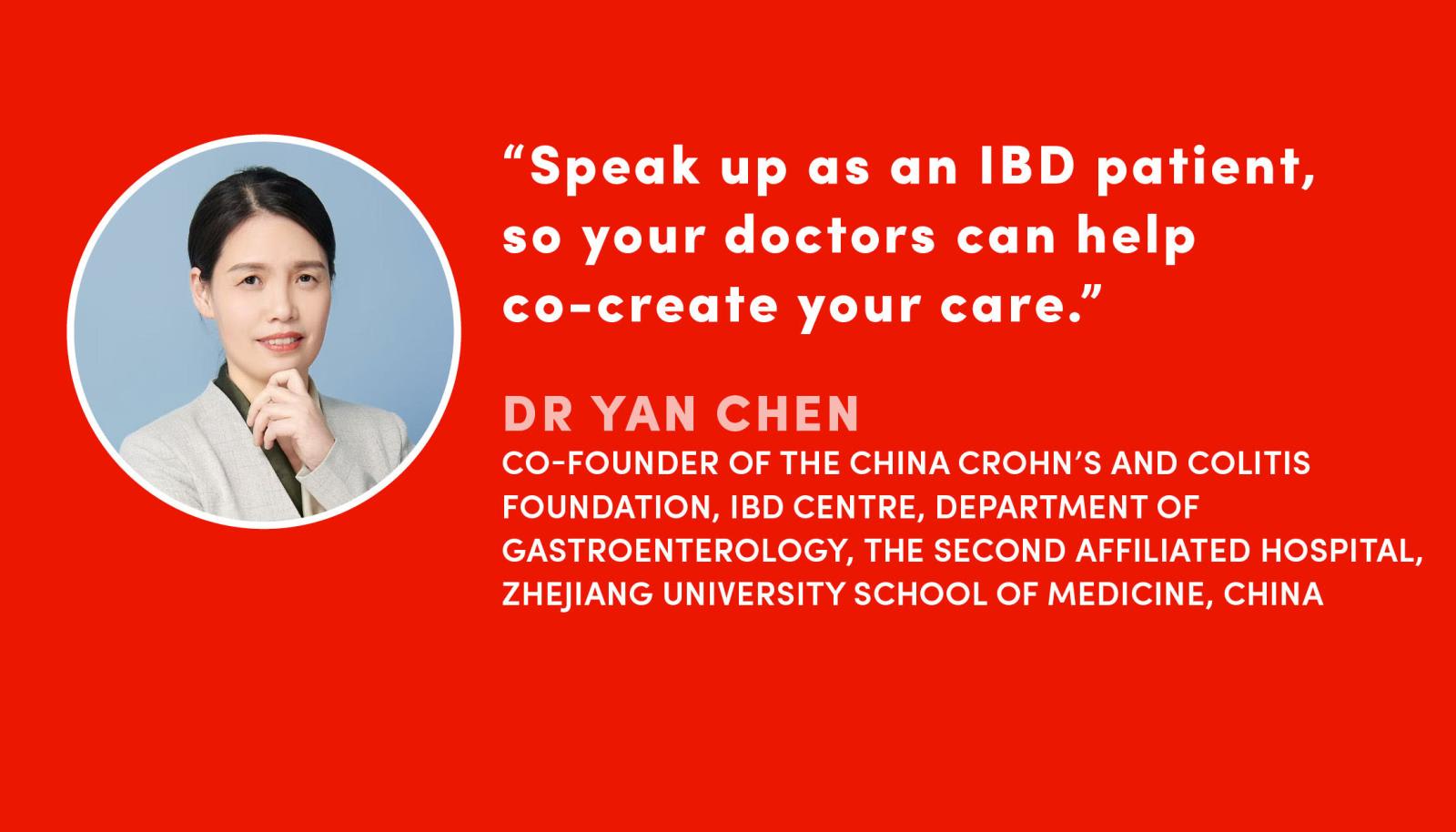
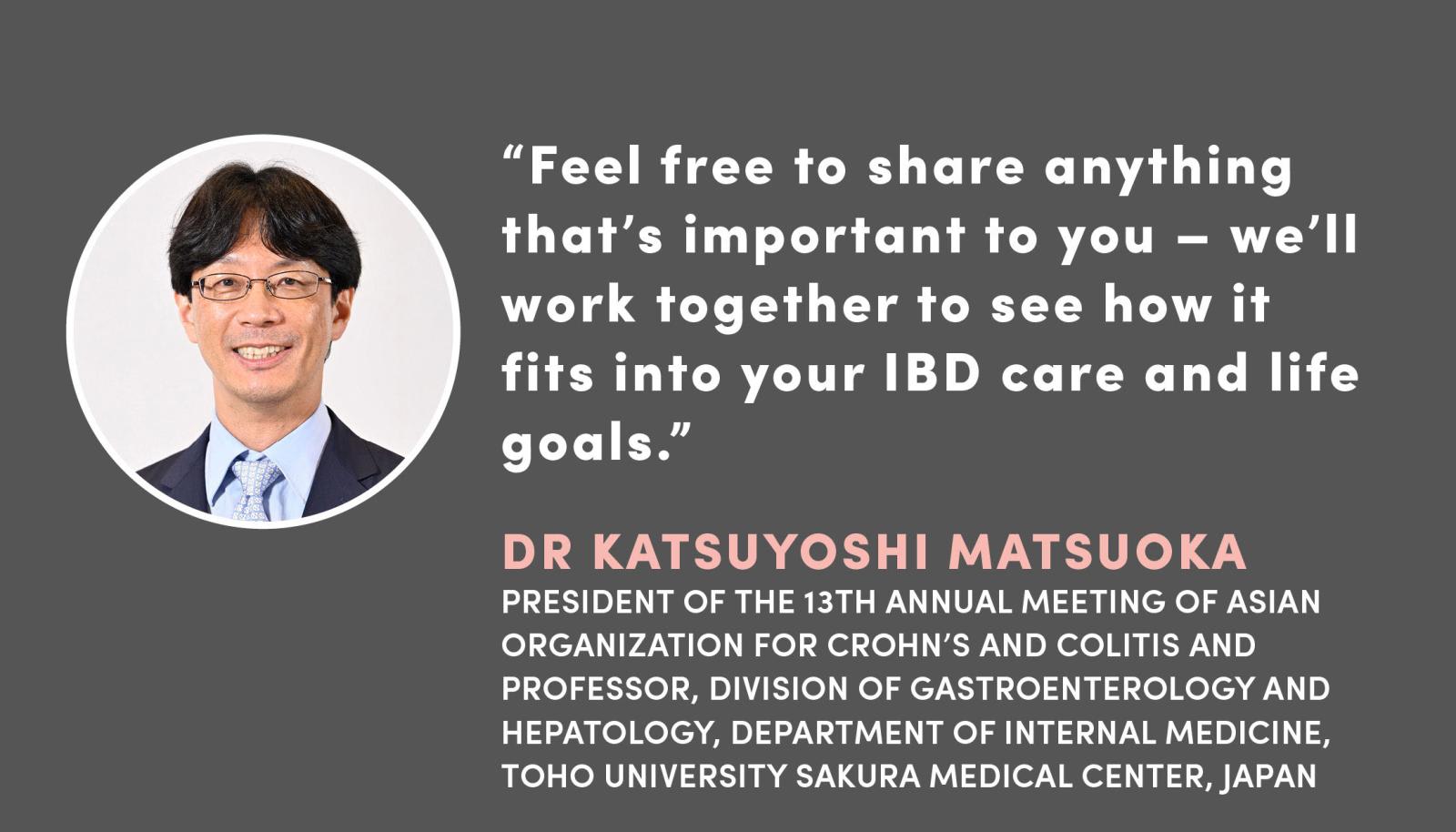
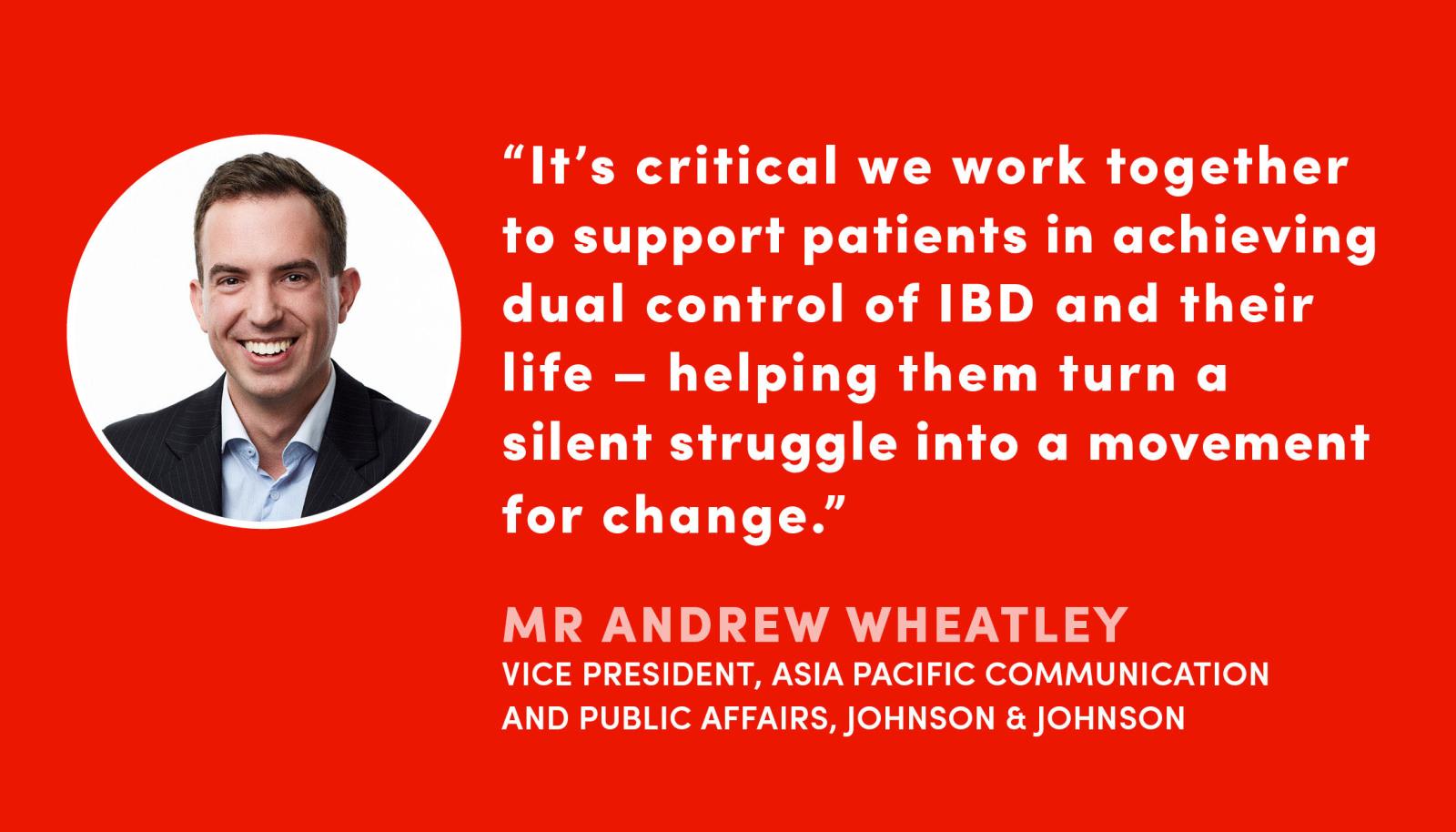





LIVING LIFE TO THE FULLEST
Ms Raven shared the story of a Crohn’s & Colitis Australia member who, after receiving support during university, graduated with strong grades and went on to earn a scholarship to study overseas. “We love hearing about young people with IBD who are doing well and living fulfilling lives,” she said.
Similarly, one of Dr Chen’s former patients – a girl whose IBD was once so severe that she feared her dreams were out of reach – told the physician she hoped to become a doctor. Three years later, the girl returned with news that she had been accepted into medical school at Zhejiang University. “She’s now doing her PhD and has turned what once seemed impossible into reality,” said Dr Chen.













